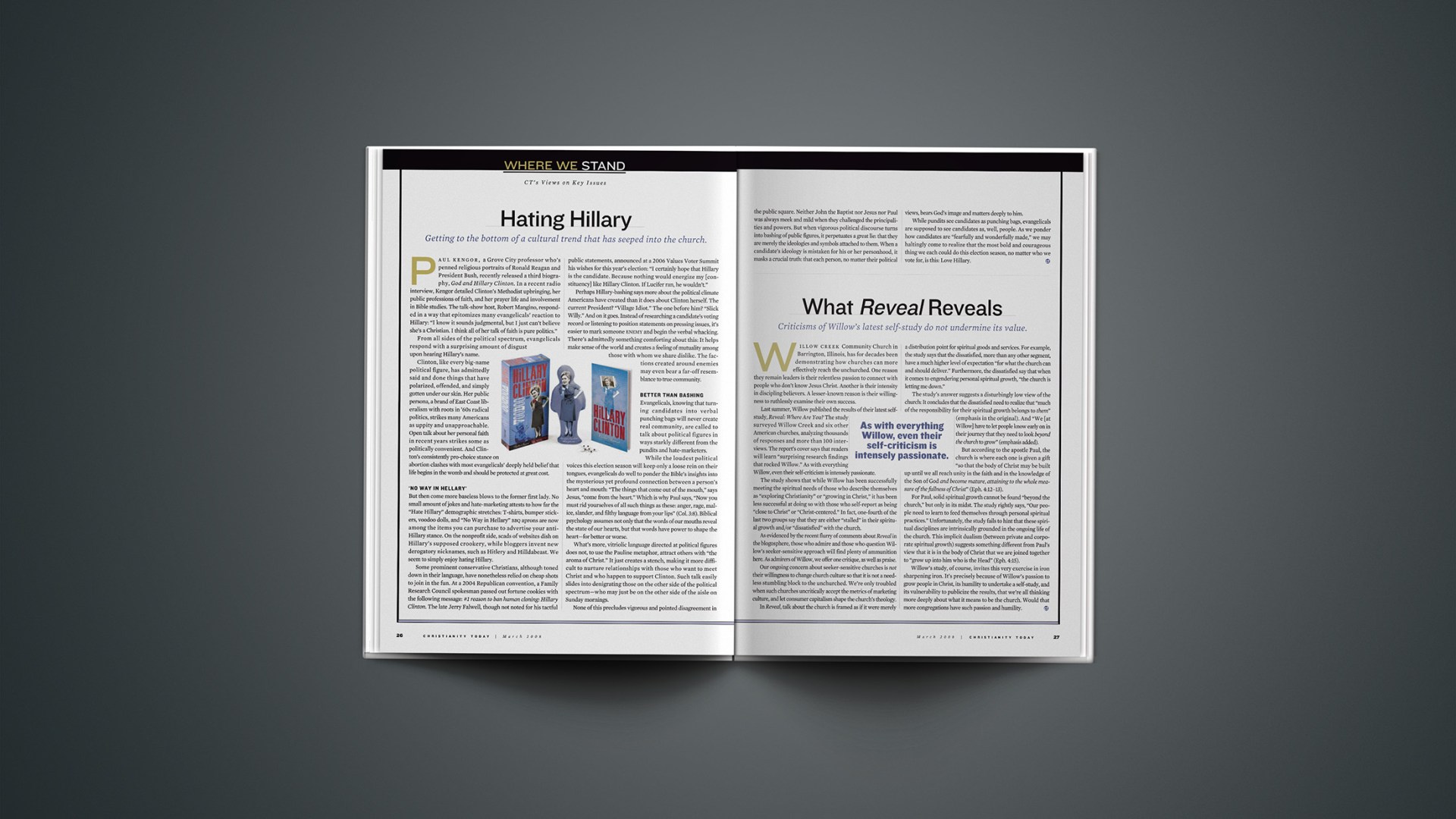Willow creek Community Church in Barrington, Illinois, has for decades been demonstrating how churches can more effectively reach the unchurched. One reason they remain leaders is their relentless passion to connect with people who don’t know Jesus Christ. Another is their intensity in discipling believers. A lesser-known reason is their willingness to ruthlessly examine their own success.
Last summer, Willow published the results of their latest self-study, Reveal: Where Are You? The study surveyed Willow Creek and six other American churches, analyzing thousands of responses and more than 100 interviews. The report’s cover says that readers will learn “surprising research findings that rocked Willow.” As with everything Willow, even their self-criticism is intensely passionate.
The study shows that while Willow has been successfully meeting the spiritual needs of those who describe themselves as “exploring Christianity” or “growing in Christ,” it has been less successful at doing so with those who self-report as being “close to Christ” or “Christ-centered.” In fact, one-fourth of the last two groups say that they are either “stalled” in their spiritual growth and/or “dissatisfied” with the church.
As evidenced by the recent flurry of comments about Reveal in the blogosphere, those who admire and those who question Willow’s seeker-sensitive approach will find plenty of ammunition here. As admirers of Willow, we offer one critique, as well as praise.
Our ongoing concern about seeker-sensitive churches is not their willingness to change church culture so that it is not a needless stumbling block to the unchurched. We’re only troubled when such churches uncritically accept the metrics of marketing culture, and let consumer capitalism shape the church’s theology.
In Reveal, talk about the church is framed as if it were merely a distribution point for spiritual goods and services. For example, the study says that the dissatisfied, more than any other segment, have a much higher level of expectation “for what the church can and should deliver.” Furthermore, the dissatisfied say that when it comes to engendering personal spiritual growth, “the church is letting me down.”
The study’s answer suggests a disturbingly low view of the church: It concludes that the dissatisfied need to realize that “much of the responsibility for their spiritual growth belongs to them” (emphasis in the original). And “We [at Willow] have to let people know early on in their journey that they need to look beyond the church to grow” (emphasis added).
But according to the apostle Paul, the church is where each one is given a gift “so that the body of Christ may be built up until we all reach unity in the faith and in the knowledge of the Son of God and become mature, attaining to the whole measure of the fullness of Christ” (Eph. 4:12–13).
For Paul, solid spiritual growth cannot be found “beyond the church,” but only in its midst. The study rightly says, “Our people need to learn to feed themselves through personal spiritual practices.” Unfortunately, the study fails to hint that these spiritual disciplines are intrinsically grounded in the ongoing life of the church. This implicit dualism (between private and corporate spiritual growth) suggests something different from Paul’s view that it is in the body of Christ that we are joined together to “grow up into him who is the Head” (Eph. 4:15).
Willow’s study, of course, invites this very exercise in iron sharpening iron. It’s precisely because of Willow’s passion to grow people in Christ, its humility to undertake a self-study, and its vulnerability to publicize the results, that we’re all thinking more deeply about what it means to be the church. Would that more congregations have such passion and humility.
Related Elsewhere:
Willow Creek Community Church’s Reveal materials include a blog, videos, and podcasts, as well as the book.
Leadership Journal‘s Out of Ur blog reported on “Willow Creek Repents?” in November and more recently on “REVEAL Revisited“
Sociologist Bradley Wright analyzed Willow’s study on his blog.
Mark Galli commented on Willow Creek’s initial findings about spiritual growth in his SoulWork column.










